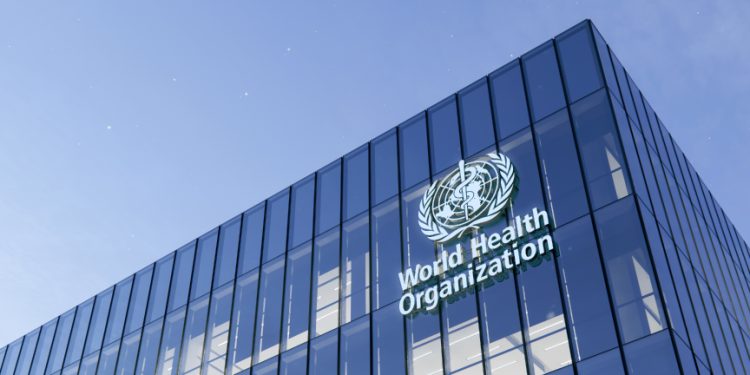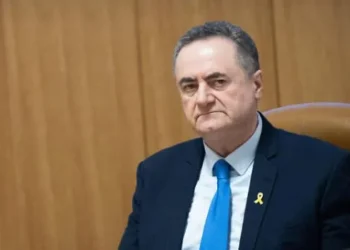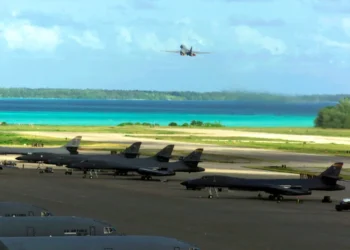The following statement from the World Health Organization (WHO) touches upon the ongoing mental health crisis in Israel following the October 2023 attacks and the necessary support being provided to those who need it the most.
As the 1-year mark of the October 2023 Hamas-led attacks passes in Israel, the mental health crisis triggered by the atrocities of that day looms large.
Frontline responders, such as the ambulance drivers and health workers in hospitals who received the wounded or were first to attend the scenes of the attack, witnessed firsthand the carnage and horror. Others, who later supported the identification of bodies and the preparation of the dead for burial, were also powerfully affected by what they saw.
In response to this collective trauma, one organization, Mashiv Ha’Ruach (which translates as “Bringing back the spirit”), is providing mental health and psychosocial support for frontline workers. Its workshop retreats, which have been supported by WHO/Europe, offer a safe space for participants to discuss and process their experiences, and to develop resilience and coping mechanisms that enable them to face the future and support other frontline workers.
Helping the helpers
In the days after the attacks, like many others, Eyal Kravitz, founder and Chief Executive Officer of Mashiv Ha’Ruach, watched videos of responders helping in unimaginably difficult situations. “I just felt that the first responders and the caregivers would need assistance. So I decided to build a supportive group for civilians.” He worked with co-founder Daniel Chermon and others to draw up a plan of action.
“So many people came forward to help in the days after the attacks,” recalls Chermon, “And we thought, who is helping the helpers?”
Vered Atzmon Meshulam, another co-founder and Professional Director of Mashiv Ha’Ruach, is one of those helpers. In the immediate aftermath of the October 7 attacks, she volunteered as a psychologist to support bereaved families as they identified the bodies of their loved ones.
This difficult and profound experience brought her into contact with the search and recovery volunteers, who were some of the first to attend the scenes of the attacks. The experience affected them deeply, and insomnia, post-traumatic stress disorder, depression, and anxiety surged, with a ripple effect that impacted their families and workplaces. However, in the chaos of the following months, there was no organization to support them through their ordeal.
Mashiv Ha’Ruach stepped in to fill this gap, delivering a program of workshops developed by Atzmon Meshulam. The workshops are held as part of a retreat, which takes place in the desert, far from the noise and distraction of daily life. Group sessions allow participants to share their experiences and build a strong support network that endures after the retreat is over.
“One of the symptoms of trauma is that people are very isolated from others. They feel that nobody can understand what they saw,” says Atzmon Meshulam.
Among the groups the organization has worked with are wives of injured soldiers, volunteer first responders, and medical staff from Soroka Medical Center, who received many of the victims of the attacks.
Processing trauma together
The attacks on October 7 left Israelis deeply scarred and frightened. For many, moving forward with their lives and regaining a sense of security and normalcy seemed impossible at the time and remains difficult today.
However, in the initial months after the attacks, many volunteers were not ready or willing to speak about what they had seen.
“At first, no one thought they needed to talk about their experiences,” says Chermon. “So it was initially hard for us to convince them to come, but once they came, people started hearing from their colleagues about the value of the retreats.”
A language to describe feelings and share experiences
Oz Tal has volunteered with a nongovernmental organization (NGO) dedicated to search and recovery operations for many years. He responded in the aftermath of the attacks, even coming under fire as he attempted to retrieve bodies from the Nova Festival.
He says the workshops gave him a language to describe and express his feelings, and sharing his experiences with others has allowed him to process his trauma. Now he encourages his colleagues to attend a retreat.
“First of all, most of the volunteers, when I tell them to come to the retreat, they tell me that they’re okay. They don’t need anything. They don’t want to come. But during the retreat, after we start talking about our feelings, the first one starts talking and starts sharing their problems, then the whole group starts. You cannot imagine the spirit in the room in that moment.”
The workshops encompass activities intended to help participants make sense of their traumatic experiences, to find coping mechanisms, and, in effect, a language to speak about what they have been through.
“The therapists are working with the volunteers on the meaning they give to their story because the story is a reality,” says Atzmon Meshulam. “You can’t change the parts that contain horrors, but you can change the way you are talking with yourself about what you’ve been through.”
After the retreat, participants are calmer, she says. “I received a message from the wife of a volunteer who attended the workshops. She wrote to me that she had got a new man back, that this was the first time that he had slept through the night since October 7.”
The organization is now offering retreats to the partners of affected staff and volunteers to build a wider network of resilience and support skills.
Hodaya Leshem, a mother of four who attended a retreat, is married to an injured soldier. “I had no support before I came to the meetings. I had to hold everyone in the family and community together, but there was no one there to hold me.”
Building resilience
Soroka Medical Center, 40 km from Gaza, is the hospital that took in most of the wounded on October 7. In the first 16 hours, the emergency department treated about 680 patients, of whom 120 were critically wounded.
Many of Soroka’s staff lost close relatives or live in the areas that were attacked, and among the victims were 2 physicians and 2 retired nurses.
Dr. Dan Schwarzfuchs, Deputy Director General and Director of the Emergency Department at Soroka Medical Center, knew he had to find an outlet for his staff to talk about their experiences.
“They are strong,” he says. “You wouldn’t survive in this job if you were not. But this was an exceptional experience that affected every aspect of people’s lives. I knew in my gut I had to find something that would help them stay resilient.”
“Every staff member has a story,” he continues. “The therapy makes them stronger, and because of this experience, we are more connected. Colleagues who before didn’t want to speak about their experiences are opening up because they hear experiences from others. People I didn’t expect would ever attend are doing so now.”
Ayelet Harris is Head of the Community Department of the Kibbutz Movement. In the days and months after the attacks, she was closely supporting the families of kibbutz dwellers, many of whom had lost family members, and many of whom had to evacuate.
“This was the first time us responders could express ourselves. Our energy was always pointing outwards to help other people and to be there for them,” she says. “In the retreat, I felt that this was one of the first times I felt re-energized, as the focus was on me and my needs. It was a safe place for me to express what I went through, and someone was there to listen to me. It was a place where I could just be me. This was refreshing and renewing.”
One year on – taking stock
Since January 2024, Mashiv Ha’Ruach has supported almost 1,000 people through their retreats.
“Each participant is not there only for themselves. They become an ambassador, supporting 30 or 40 people in their workplace or community,” says Kravitz.
On the first anniversary of October 7, Dr. Schwarzfuchs will be in Soroka Medical Center. “I thought of staying home with my own recollections, but I know that some of the patients that we treated on that day will return, to try to psychologically close the loop. I will go in to be there for them and for my staff.”
He believes that 1 year on, people are more ready to speak about their experiences.
“In the beginning, people have to fight or to fly. You close yourself off; you want to be in control of yourself. But I feel that the more time is passing, the more people want to speak.”
Chermon acknowledges the huge need for psychosocial support among those who are helping others: “We didn’t start Mashiv Ha’Ruach under good circumstances. But the fact is that people need it, and they’re going to still need it for years to come.”
Kravitz continues: “The support of WHO has been pivotal in enabling us to reach more individuals and groups in need. We are proud to be the only resilience initiative in Israel that has received WHO recognition, thanks to the recommendation of the Israeli Ministry of Health. This partnership has been invaluable, and I want to express our deep appreciation for WHO.”
WHO’s mandate is to support health providers and civilians in need, no matter who or where. Alongside support for Mashiv Ha’Ruach, WHO has supported the Israeli NGO Mosaica to develop an initiative that leverages the influence of religious leaders from both Jewish and Muslim communities to connect people with critical mental health support, increasing the uptake of these services and reducing the stigma of seeking help.














